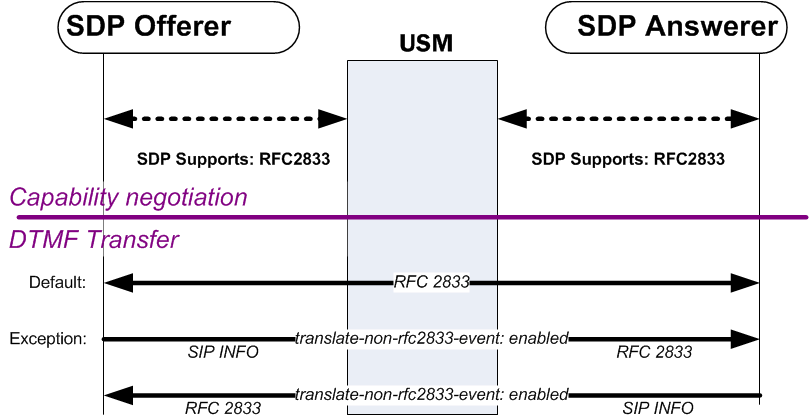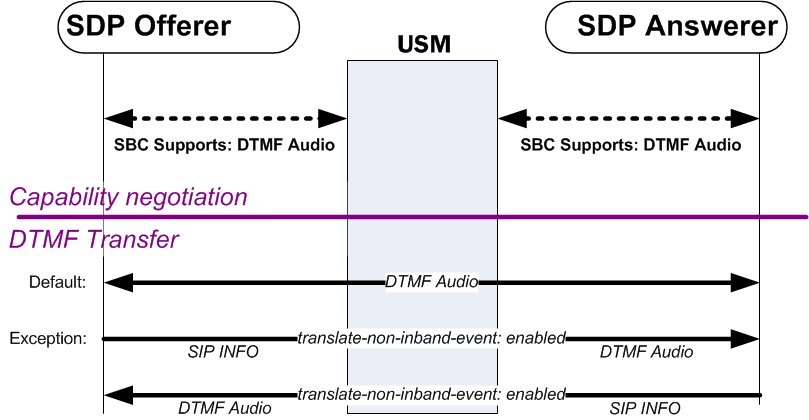Identical Inband with Signaling DTMF Transfer Exception
Endpoints may send signaling-based DTMF indication (SIP INFO) to the Oracle® Enterprise Session Border Controller at any time. Most of the time they are passed through the Oracle® Enterprise Session Border Controller unchanged. You can enable an exception to this behavior forcing signaling messages to either RFC 2833 or DTMF audio tones depending on the call’s DTMF transfer mode. The two parameters to enable their respective exceptions are located in the media manager configuration.
Note:
These behavior exceptions are only applicable when both sides of the call support and prefer the same DTMF transfer mode.Override Preferred RFC 2833
When RFC 2833 is supported on both sides of the call, it is the preferred method of DTMF indication transport. To override this behavior, enable the translate non rfc 2833 parameter.

Override Preferred DTMF Audio
When DTMF audio tones are supported on both sides of the call, it is the preferred method of DTMF indication transport. To override this behavior, enable the translate non inband event parameter.

Note:
Enabling one or both of these exceptions can cost DTMF translation resources whether they occur in the network processors or on transcoding modules. The translate-non-inband-event exception is especially costing because it reserves transcoding for all calls that resolve to support for DTMFable to DTMFable codecs.


